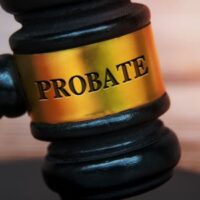FAQs About Creditor Claims in Pennsylvania Probate Cases

Creditors have rights with respect to the amounts due from a debtor, and these are not extinguished by the passing of the person who owed money. Upon death, an individual may owe on credit accounts, utilities, a mortgage, and many other bills. As such, as part of the key tasks of an estate administrator under Pennsylvania probate laws, it is necessary for the personal representative to address these debts. This is true regardless of whether the decedent had prepared a will, and it is not possible to eliminate debts through provisions in the will.
If you were named as executor in a will or may seek appointment as administrator in a case without a will, you will need to know details about paying creditor claims. Having legal representation is crucial, so consult with a Carbon County probate lawyer about tasks of administration. You can also grasp some of the basic concepts by reviewing some answers to frequently asked questions about creditor claims in Pennsylvania probate.
What are my responsibilities to creditors? As the personal administrator, there are two tasks that may be required of you when going through the probate process.
- You must send official notice to known creditors. These are entities that you become aware of as you review the decedent’s paperwork on all assets, income, expenditures, and debts.
- The deceased may also have debts to creditors that you do not discover as you go through the estate administration process. You must publish a notice to creditors in a local publication, which alerts the entities that they must file a creditor claim in probate court.
Can I request verification? You are not required to simply pay any creditor that comes forward demanding it. It will be necessary to verify creditors’ claims to ensure they are valid and accurate in amount. Once you establish that the decedent did owe on the debt, you forward payment. In some cases, paying creditor claims may require court approval.
What about the impact on beneficiaries? Creditors have priority in estate administration, even coming before the interests of beneficiaries in a will. Verified claims must be paid first, which may reduce the value of a distribution to one or more beneficiaries designated in a will. The result is the same if the decedent did not have a will. Heirs will receive their portion of the estate after payment to creditors.
In addition, the personal representative may need to sell estate assets to pay creditors. This may affect the interests of a beneficiary who was supposed to receive a specific bequest in the will, as well as an heir who would receive the assets under the laws of intestacy.
Discuss Additional Details with a Pennsylvania Probate Attorney
These answers to common questions about creditor claims are useful, but you can rely on a knowledgeable estate administration lawyer to assist with the legal process. To learn more about your role, please contact the Law Office of Kim M. Gillen, P.C. We can set up a consultation to review your circumstances at our location in Lehighton, PA.
Source:
legis.state.pa.us/cfdocs/legis/LI/consCheck.cfm?txtType=HTM&ttl=20&div=0&chpt=33

